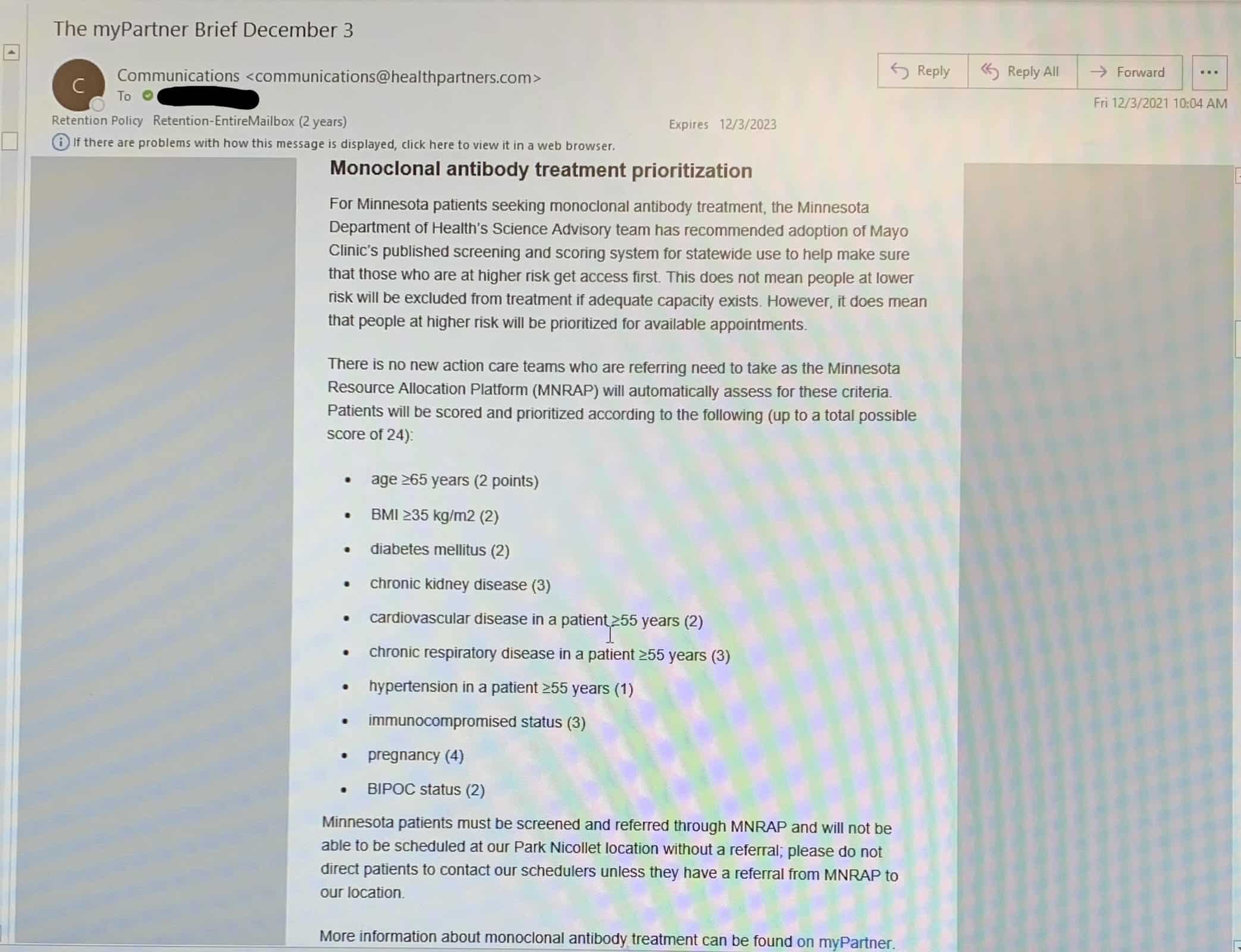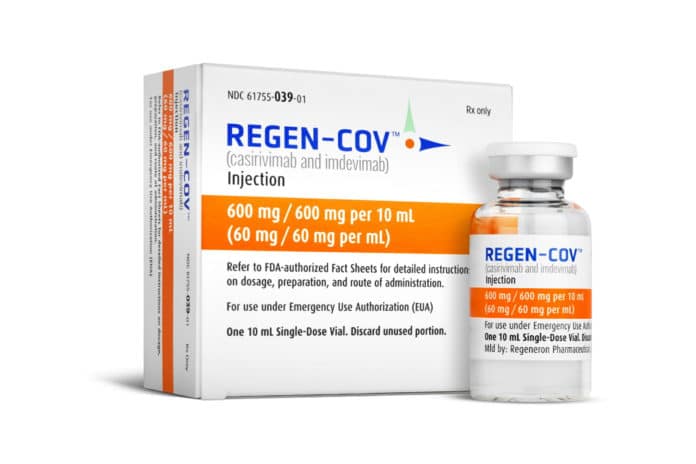Minnesota says healthcare providers should provide non-white patients with preferential access to monoclonal antibodies (mAbs). This isn’t a conspiracy theory; it’s written in a state document and apparently upheld by local hospitals.
The Minnesota Department of Health (MDH) says in a document titled “Ethical Framework for Allocation of Monoclonal Antibodies during the COVID-19 Pandemic” that “race and ethnicity alone, apart from other underlying health conditions, may be considered in determining eligibility for mAbs [monoclonal antibodies].”
Monoclonal antibodies “are made in a laboratory and act a lot like the natural antibodies that a person’s body makes to fight diseases,” per MDH. Thus far, they have been used to both to treat active COVID cases and to help prevent healthy people from becoming infected. The antibodies have shown so much promise, in fact, that national supplies are running low amid surging demand, resulting in some patients being denied the treatment.
Minnesota’s solution is to ration mAbs based on various health factors, each assigned a different score. The maximum number of points a patient can amass is 24. Antibodies will be distributed based on these scores (highest numbers receiving treatment first) where supplies run low.
Here are the factors and their associated values:
- Being BIPOC (2 points)
- Age 65+ (2 points)
- BMI 35 kg/m2 and higher (2 points)
- Diabetes mellitus (2 points)
- Chronic kidney disease (3 points)
- Heart disease in patients ages 55+ (2 points)
- Chronic respiratory disease in patients ages 55+ (3 points)
- Hypertension in patients age 55+ (1 point)
- Immunocompromised (3 points)
- Pregnancy (4 points)
Based on this scoring metric, if two pregnant women, one black and the other white, visited a hospital with limited mAbs supplies, the black woman would receive priority because her score would be six, but the white woman’s score would only be four.
This isn’t a theoretical model either; it’s apparently being used in Minnesota hospitals.
HealthPartners controls hospitals and clinics across the state and is responsible for serving 1.2 million patients per year. Alpha News obtained an email that appears to show the company directing its employees to use the scoring system, racial element included, to decide who gets mAbs treatment during shortages.
“This [system] does not mean people at lower risk will be excluded from treatment if adequate capacity exists. However, it does mean that people at higher risk will be prioritized for available appointments,” the email explains.

Alpha News reached out to HealthPartners but received no response. This point system was devised by the Mayo Clinic, according to the MDH document.
The state claims this policy is designed “to promote equity in access and address health disparities.”


















